A HUGE welcome to all my new subscribers! I’ve been blown away by the love I’ve had for this newsletter since my AirFryer and BBC Radio 4 Kitchen Cabinet post! Now I just hope I don’t let you down…
Today’s newsletter starts with some fishy business. You might be familiar with this everyday scenario. Grocery shopping in a rush, the quick supermarket dash on the way home after a long day. Packs of pink-orange salmon with their easy promise of omega-3, protein and versatility are a staple. But a wave of food writers, chefs, and sustainability advocates have been pushing back, questioning whether salmon deserves its top spot in our meals.
UK charity Wildfish published a report on Scottish Salmon recently and I wondered aloud if I should write a piece on some of their concerns on social media. I was quite taken aback by how many food writers responded to say they didn’t touch the stuff. Then pointed me to a post, where investigative journalist Alex Renton said this:
“I'm a health conscious omnivore, and I am picky about what I eat and there are foods I absolutely will not touch. I haven't eaten salmon – farmed salmon, which is kind of all you can get – for decades. Because, I live in Scotland, I know the West of Scotland. I've seen the salmon industry upfront and, and what is permitted to go into those poor fish, quite apart from the huge welfare and eco issues, is actually revolting and unnatural.”
So, I went fishing (sorry!) to piece together what the problem is here. I spoke to Lex Rigby, Farmed Salmon Campaign Manager at Wildfish, which is calling for chefs, restaurants and food professionals to take farmed salmon off their menus. In the interest of reporting on both sides of the story, I also got a download of comments and a statement from Salmon Scotland, which represents the Scottish salmon sector.
I’ve unpacked both sides of the story and here is what you need to know.
Scottish salmon is the UK’s biggest food export. There is no Scottish wild salmon, all Atlantic salmon sold in the UK is farmed. Lex told me it is illegal to catch wild salmon without a strict net or trap fisheries license. The only wild caught salmon available is sockeye imported from Alaska. Salmon, carp and tilapia are the most farmed fish in the world.
Fish farming, or acquaculture, grew on am industrial scale since the 1970s. It is viewed as a solution to the multiple challenges of Illegal, Unreported and Unregulated Fishing (IUU, check me!), dwindling wild fish stocks (often called blue food) and the increasing threats to marine life posed by climate change and pollution.
The WildFish Report: A Reality Check?
A new report from UK charity WildFish, The Reality Gap: An Examination of Scottish Salmon Farming, takes a hard look at the industry. I learnt:
Wild salmon populations in Scottish rivers have declined by over 70% in the last 25 years, coinciding with the rapid expansion of open-net salmon farms. These are located off the coastline and allow the ocean to support farming and waste disposal
The industry markets farmed salmon as high welfare and sustainable, but WildFish claims no major Scottish salmon farming company currently meets adequate environmental or welfare standards.
Open-net farms contribute to high mortality rates, sea lice infestations, and pollution that threaten wild fish and marine ecosystems. Inevitably, farmed fish escape, breed with wild fish, infect them and pollute them with growth enhancers and antibiotics
Vast amounts of fish are suffering and dying so we can enjoy our beloved salmon. I won’t go into the gory details, but the WildFish Off the Table campaign calls on chefs, restaurants, and food professionals to remove farmed salmon (and sea trout) from their menus. Even at the most well managed of farms (as Prue Leith notes here), salmon are fed with fish oil that is derived from fish humans can eat and provide staple, nutritious diets in poorer nations. There are calls for the Norwegian government to ban the use of fish oil from west Africa.
The Other Side: A booming industry
Salmon Scotland, the industry body representing farmed salmon producers, argues that the report is misleading. They highlight:
They’re meeting our ever growing demand for the pink orange stuff! Scottish salmon exports in 2024 amounted to £844 million, a record high and a 45% increase from the previous year
They’ve invested £1 billion since 2018 to improve fish health and welfare, leading to a 36% reduction in mortality rates in 2024 compared to 2023
Scottish salmon is the UK’s top food export and one of the most regulated farmed animal sectors, with certifications from the RSPCA, GlobalG.A.P., and the Aquaculture Stewardship Council
Lex agreed that they are regulated and transparent - the Wildfish Report uses data they publish. But these regulations could be tighter with more information available, e.g. for hydrogen peroxide, which is used for salmon lice but also causes their mortality. The industry also has an impact on the Scottish economy, employing 12,500 people, creating opportunities beyond oil and gas with political clout. In a piece for the Telegraph, Ed Cumming says this:
As the salmon business has grown, it has become politically important, too. Scotland remains a minnow in farming terms compared to Norway, which produces seven times as much per year (1.4 million tons to Scotland’s 200,000), or Chile, but it is growing. For an SNP keen to show that the country could be economically independent, salmon looks like pink gold.
Perhaps one answer to the problem is to eat more wild salmon? Well, it’s spenny. As Julian Baggini notes in his book How the World Eats, it’s not that wild and devoid of human intervention either. Many governments and conservation groups breed salmon in hatcheries and release young fish into rivers to boost populations.
Perjaps another answer iis to move salmon farming on land? The first proposal to do this, in Lincolnshire, has been legally challenged by animal right activists on welfare grounds. The £120m farm will be capable of producing 5000 tons of fish per year, classic factory farming reports Food Manufacture. Other animals are raised for our consumption intensively like this, so what’s the issue?
It is this: given the well-established and much communicated environmental and animal welfare impacts, we should know better by now and stop regressive developments in their tracks.
Is there any sustainable salmon?
The Sustainable Restaurant Association did a great newsletter about whether there is any sustainable salmon. Spoiler alert: No. But do please read it.
You may think that certifications would help selection, but there is inherent coflict of interest in certifiers as they earn money from them awarding them. Lex doesn’t think they are qualified to run checks. And Ed notes in his piece that the RSPCA has no upper limits on mortality for limits so a farm with 80% of fish dying could still keep their certificate.
Certification is a persistent problem. There are plenty of different badges for salmon, but it is hard for consumers to know what they mean. The RSPCA Assured label, under whose banner almost 100 per cent of Scottish salmon is farmed, has come in for particular criticism.
Aquaculture Stewardship Council or ASC has only certified nine out of over 200 Scottish salmon farms. In it’s own words: “There are hundreds of salmon farms ASC certified around the world, and a recent change to the ASC Salmon Standard has allowed Scottish farms to apply for certification. So far nine farms have successfully demonstrated their environmental and social responsibility and achieved certification”. This too met with critisicm, as a five fold increase in sea lice was permitted in a rule change to allow Scottish salmon farms to qualify.
Saying that, some certification is better than none at all!
So what are food lovers to do?
Listen, I’m not going to tell you what you can and can’t do. Some restaurants and food writers are choosing to step away from farmed salmon entirely, while others are looking for better alternatives - whether that’s wild-caught fish from other regions, plant-based seafood, or more sustainable aquaculture solutions. There are plenty of fish, as they say…
I’m sharing the problem and will leave it to you to plate up what you see fit. With growing consumer awareness and pressure from sustainability groups, the debate around salmon farming isn’t going away. I also inherently believe that big industry will invest where they see the most commercial opportunity. So, if we keep asking the tough questions and caring, and they keep being transparent and making improvements manybe this relatively new industry will find a way to be better.
Where do you stand? Will salmon stay on your plate, or are you rethinking your choices?
I’ve now listened to myself on BBC Radio and can confirm a) everyone I know listens to The Kitchen Cabinet and b) I didn’t make a total tit of myself. So if you fancy a listen, I’m on episode 2 here.
Spring is springing, and there is colour everywhere…
“Holi is the annual Hindu festival of colour. Friends and family spray each other with brightly coloured powder and liquids, and Holi festival food embraces a similar path of joyful hedonism. While some people choose to be vegetarian and avoid alcohol on the day, many embrace all Holi food and drink.”
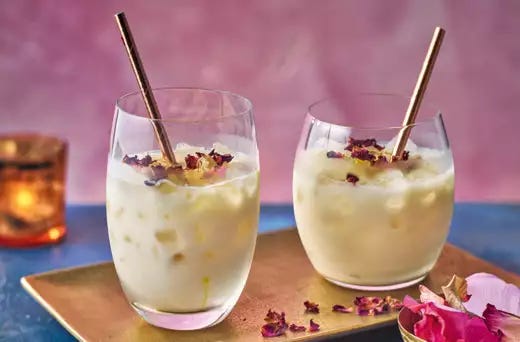
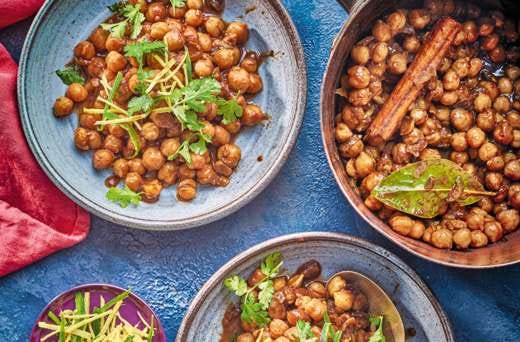
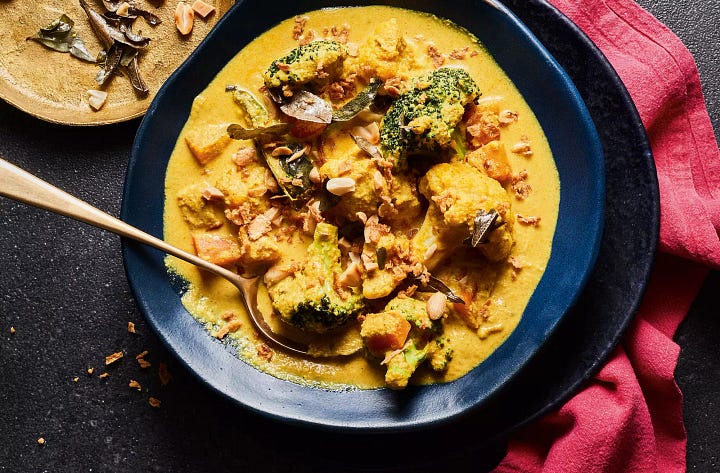
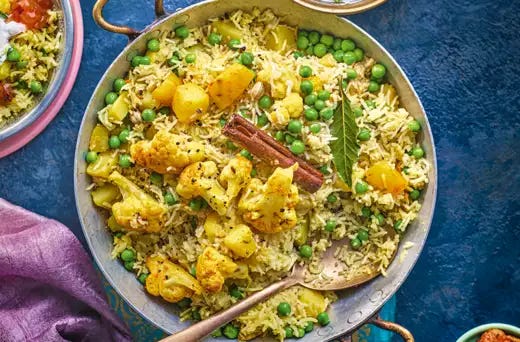
I gave the above copy to Waitrose and reviewed their Holi-friendly Indian recipes for cultural sensitivity, which are now curated on a website page. You can find them here if you fancy cooking up a timely feast around 14th March. Mine are the:
Boozy thandai: Rose, fennel & almond milk cocktails
Chole: Spiced chickpeas
Tahari: Cauliflower, potato and pea rice
Vegetable Salan: Mixed vegetables in a coconut, peanut, sesame and tamarind sauce
If you’d like to have a play with throwing coloured powders at each other, may I recommend chef Vivek Singh’s Holi Pop up in the City of London? The restaurant places a white marque with changing stalls beside it in the square it’s located in. You have a play, clean up and then sit down to a special Holi menu. I was invited to the opening (an annual tradition from before the pandemic) and I can confirm it’s all excellent. Vivek has a wide repertoire of dishes from across India, some of which I haven’t seen on the menu in London so I would go check it out.
If you’d like to see my peers in the food writing world and me running wild with coloured powders, also terrorising my sister (and plus one) and get a sense of the menu, there’s an Instagram reel here.
One last thing!
It’s International Women’s Day tomorrow. Happiest of days to all you fabulous women and the men who support and cheer us on.
I met up with two wonderful women I met through the world of healthy, sustainable nutrition and we went to the aptly titled Spring by Sky Gyngell for lunch - a sustainably, seasonal restaurant with low waste ethos. The set menu is excellent value, especially given the spectacular space and setting in Somerset House. It was heaving at weekday lunch too.
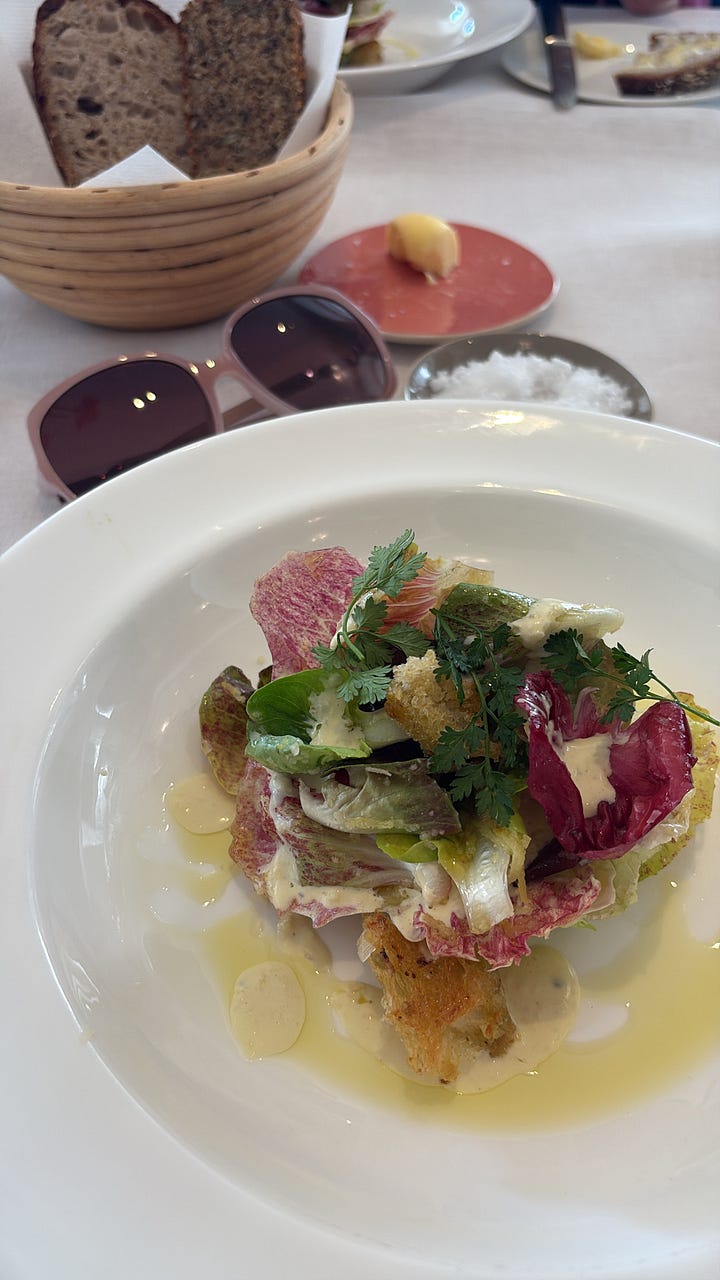
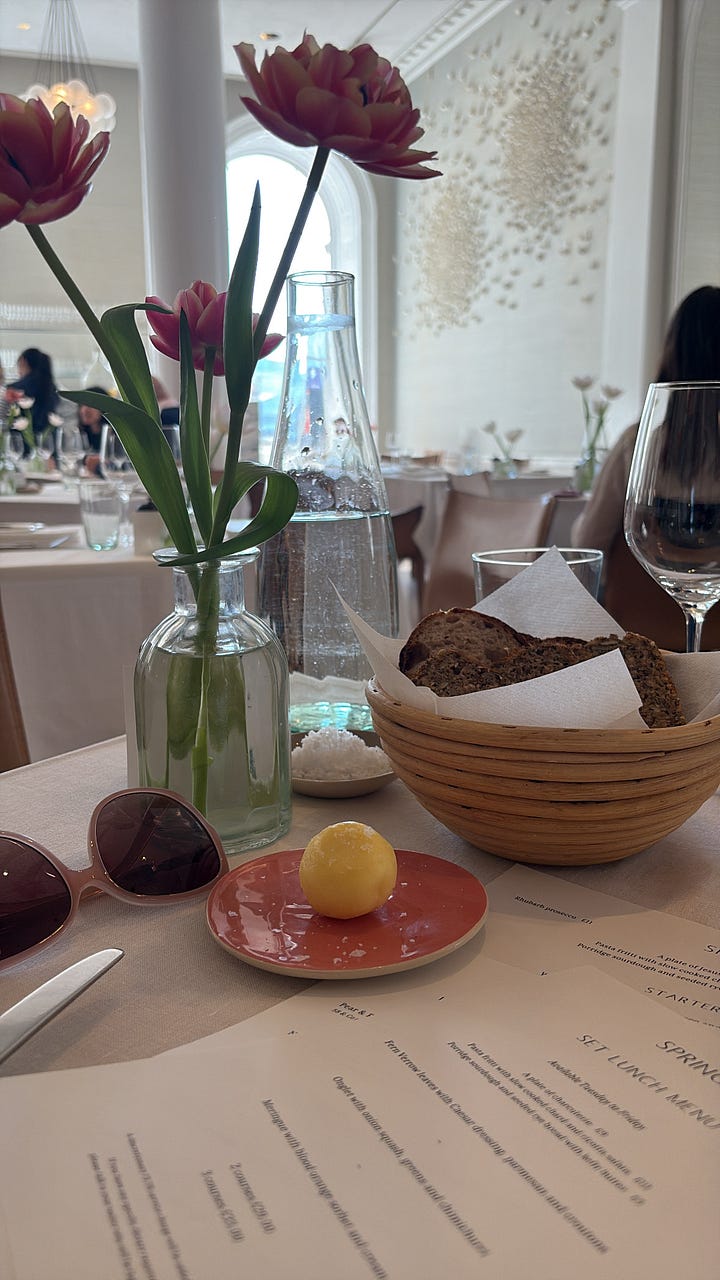
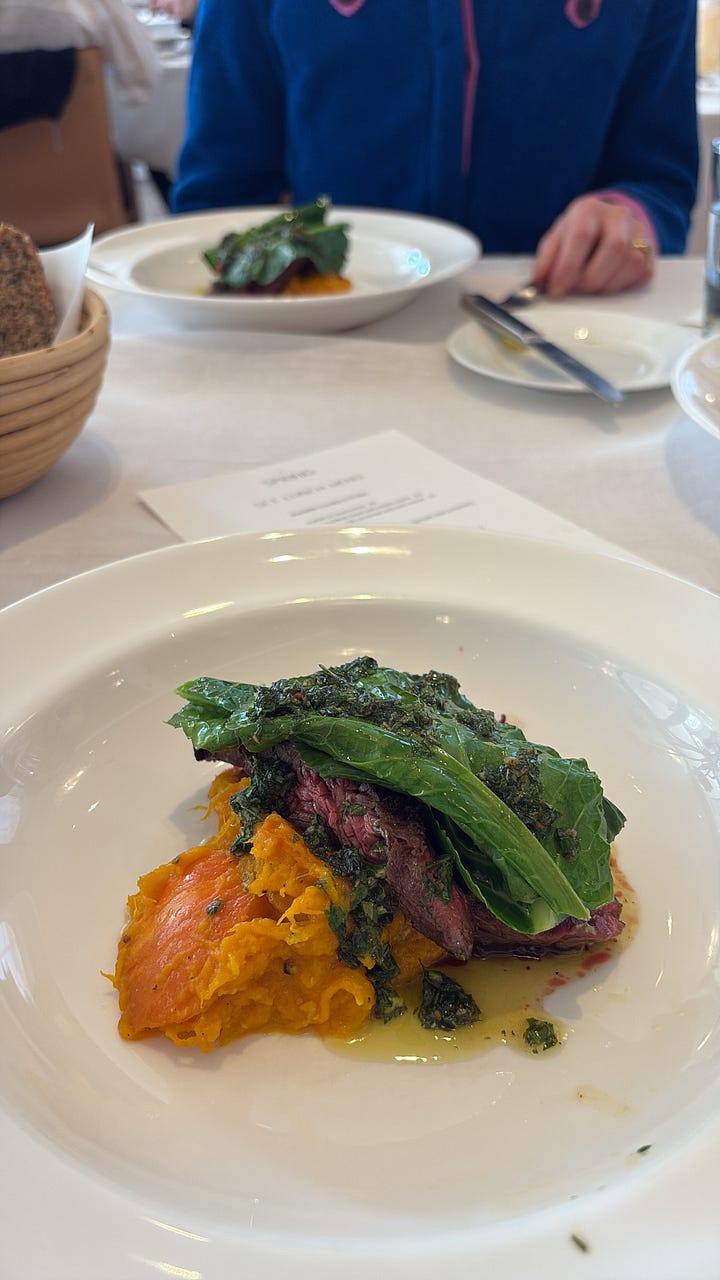
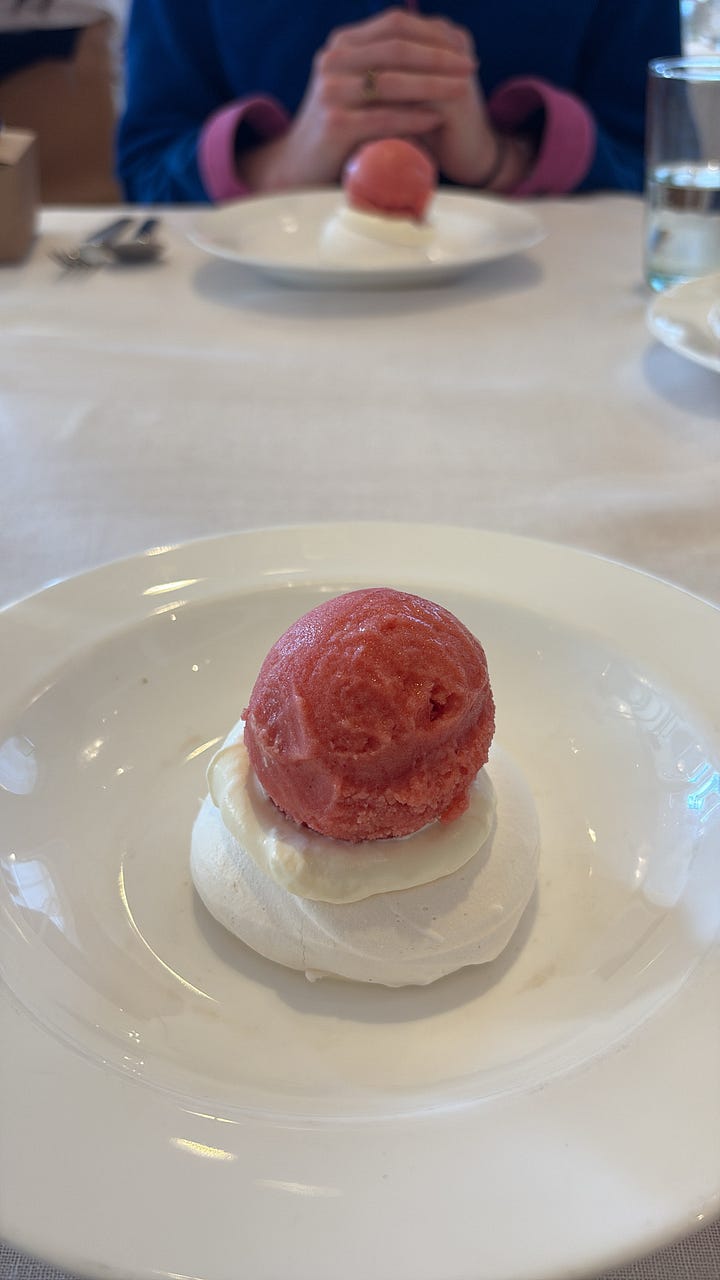
As it happens, there is a soil exhibition at Somerset House too and it would have been rude not to pay it our respects. If you’re wondering why soil needs its own exhibition, this might help. I couldn’t have written it better myself, so didn’t even try.
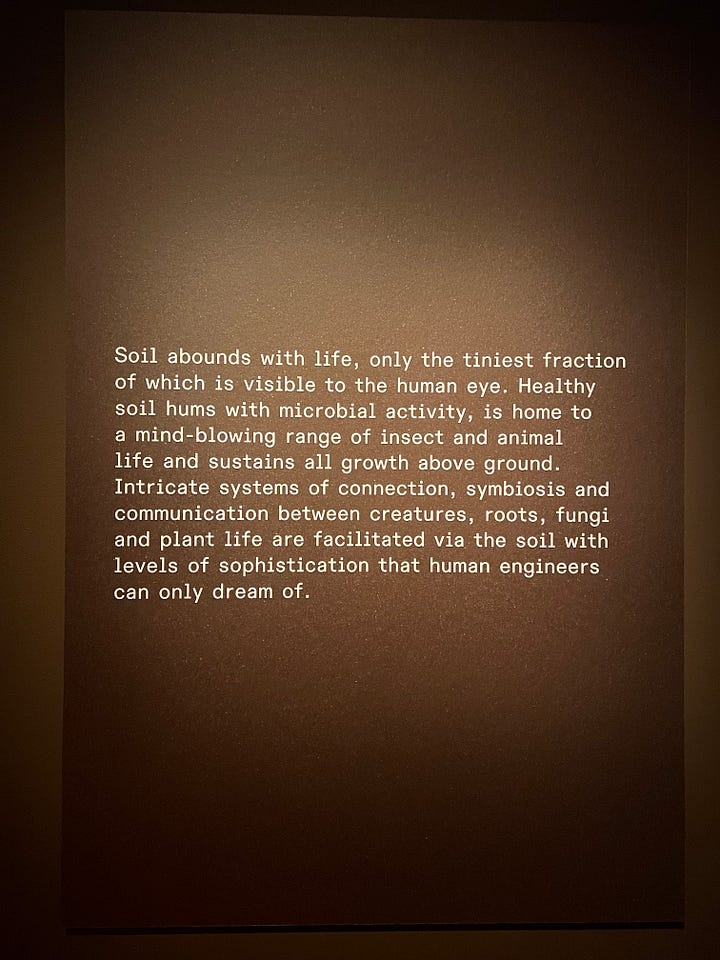

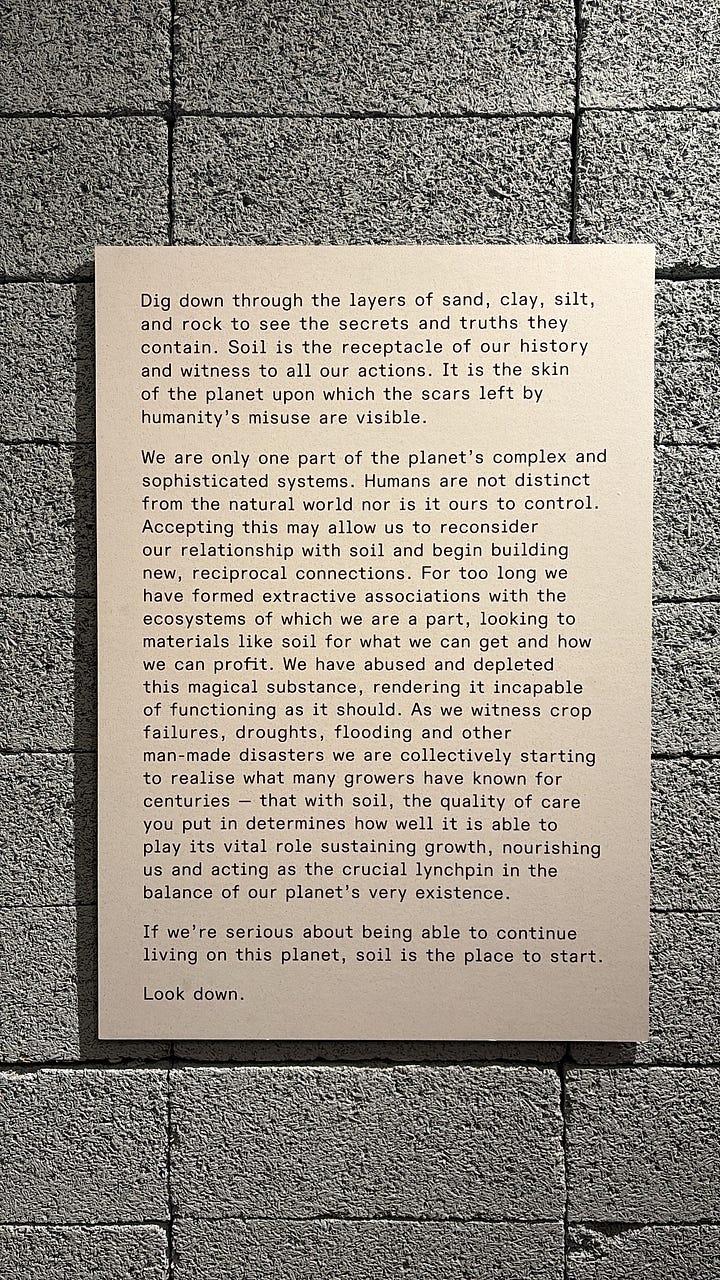
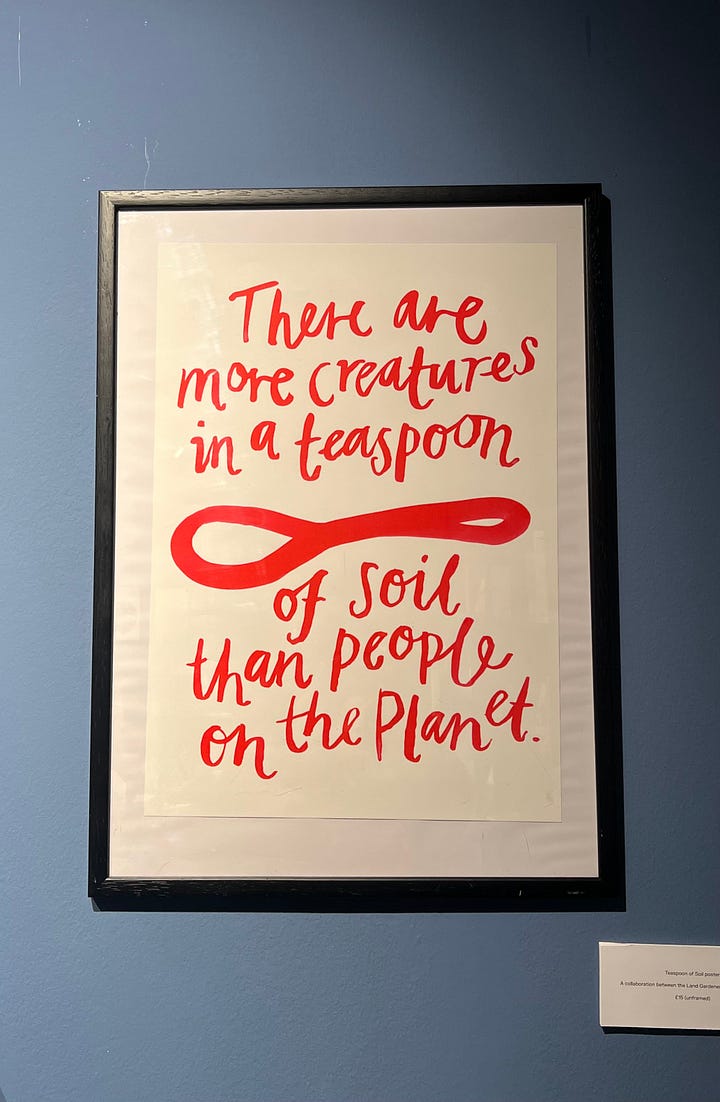





I haven't touched it for years. I do occasionally get the Alaskan sockeye when it is on offer as it is so expensive. But very rarely. What really bugs me is the number of artisan smokehouses using the Scottish salmon - they talk so much about their small batches and the aromatics they use - but really brush over where their salmon comes from. It reminds me of Country Ham in the US - so much effort goes into the process of curing, but no mention of the very dubious hog farm provenance of the hams.
I have in the past considered trout to be a viable alternative, but there have been a lot of issues there too in terms of welfare. Plus they are also fed on fish meal and oil. Chalk stream trout sounds lovely doesn't it? Makes me think of beautifully clear, free running water, with banks flanked with watercress. All very Wind in the Willows. I fear while this might be the case in rare instances, it is far from the norm.
Now we pretty much stick with fresh and smoked mackerel. Not quite the same and fiddlier because of the bones, but more reliable.
Thanks for raising an important diet issue in a well-balanced way. It is, of course, complicated, but improvements are possible.
Incidentally I guessed most of the typos but one had me flummoxed ('well it's spenny'?). Substack is rife with them so maybe it's a software bug?